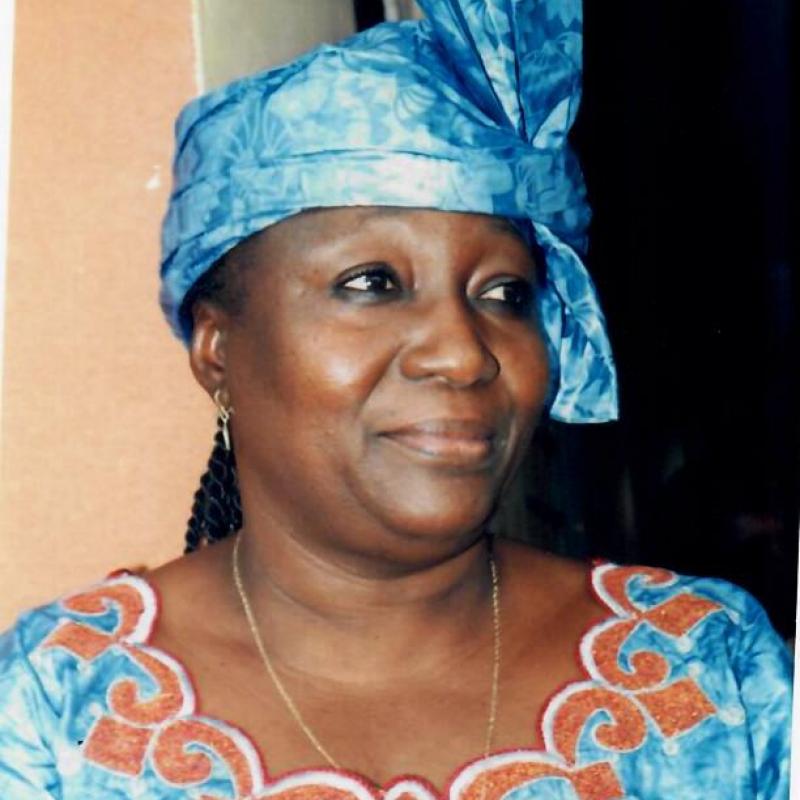Diplômée en sociologie de développement de la Faculté des Sciences Sociales de l’Université de Strasbourg II (France, 1983-1985 ;), madame KONATE Georgette TRAORE est l’une des pionnières de la promotion du genre dans les projets et programmes de développement au Burkina Faso, mais aussi dans la région du Sahel.
Formations, conseil, accompagnement, formulation de programme, évaluation, publications, études spécifiques, plaidoyer ont été les actions majeures qu’elle a menées durant plus de 30 ans d’abord en tant que chercheur au sein de l’université de Ouagadougou (CEDRES, 1985-1987), ensuite en tant qu’assistante conseillère genre au sein de l’Ambassade du Royaume des Pays Bas au Burkina Faso (1994-2000) et en tant que consultante et chef de cabinet conseil (depuis 2000).
Elle a participé à plusieurs études et travaux sur le développement rural en général et spécifiquement sur la prise en compte de la dimension genre dans les programmes et politiques de développement au Burkina Faso, au Mali, au Niger, au Sénégal.

Georgette Konate
Independent consultant Independent consultantEstimada Jackie,
Solo una modesta contribución en respuesta a las preguntas importantes y relevantes que planteó sobre el papel y el lugar reservado para las mujeres en los proyectos y programas relacionados con el sector agrícola.
Comienzo con la última pregunta para decir que tener en cuenta el tema de género es esencial si queremos alcanzar los objetivos: inducir efectos e impactos positivos y duraderos para todos en las comunidades con las que trabajamos como partes interesadas.
En mi opinión, el enfoque de género es el enfoque participativo por excelencia en términos de desarrollo, si nos damos los medios necesarios para su correcta implementación (asegurando su integración a lo largo del ciclo del proyecto y del programa; utilizando experiencia confirmada en el tema; asegurando que todos las actividades que contribuyen a la gestión de este tema están presupuestadas, etc.).
En cuanto a las lecciones aprendidas, los efectos e impactos de los proyectos y programas para mujeres, así como las diversas recomendaciones hechas sobre este tema, recomendaría, como ejemplos, referirme particularmente a los informes de evaluación de los programas de país de la FAO en Burkina y Níger llevados a cabo bajo los auspicios de OED en los últimos años. Para Burkina Faso, la evaluación abarcó el período 2010-2015, mientras que para Níger la evaluación se extendió durante el período 2011-2016. Las cuestiones planteadas en esta discusión se plantearon hasta cierto punto en los términos de referencia para este ejercicio.
Las respuestas a ciertas preguntas sobre la participación y el empoderamiento de las mujeres también pueden extraerse de la rica documentación producida por la FAO y sus socios sobre la herramienta "DIMITRA Listening Club" utilizada en Níger y en Senegal (para los casos en que he tenido el oportunidad de visitar a través de evaluaciones en los últimos años).
Lamento haber sido general en mi reacción, pero creo que para este tema será más útil utilizar fuentes documentales reales para tener respuestas más precisas.